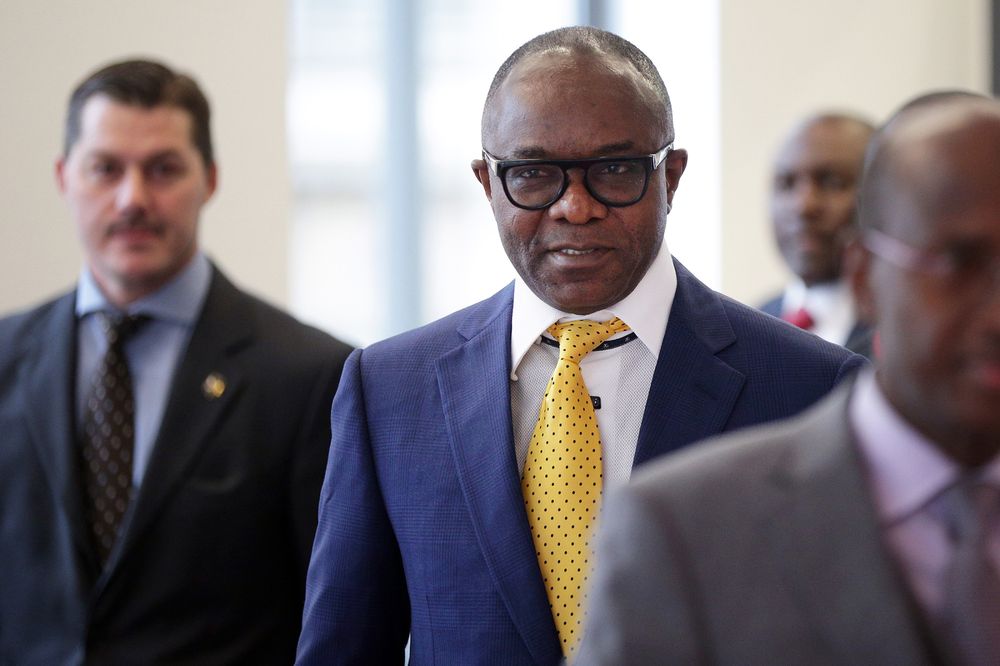- FG to Collaborate With Saudi Arabia on Refineries Revamp
The Federal Government on Wednesday said that it would collaborate with Saudi Arabia for the revamp of Nigeria’s refineries in Warri, Port Harcourt and Kaduna.
Minister of State for Petroleum Resources, Ibe Kachikwu, said that Nigeria was currently tapping from the vast experience of Saudi Arabia, adding that both countries would take strong business decisions on the matter in due course.
Kachikwu spoke at the Abuja headquarters of the Federal Ministry of Petroleum Resources while playing host to the Minister of Oil and Energy for Saudi Arabia, Khalid Al Falih.
Commenting on some of the discussions which the Federal Government had with the delegation from Saudi Arabia with respect to refineries during a press conference at the FMPR, Kachikwu said they looked at what the experience had been for the two countries.
He said, “As you know, the refineries have been very close to my heart. So, I did bring up the issues of experiences that we’ve had so far and he shared his own experiences in terms of successes that they’ve had.
“We’ve got an understanding to come look deeper into how they’ve done their own trajectory to get to where they are today and what experiences we can pick from there. No formal things agreed yet, but there is the willingness to collaborate and learn from one another. These are usually very strong business decisions and at the appropriate time, we will nosedive into the details of that.”
Kachikwu further stated that the meeting with the Saudi delegation was with respect to the current outlook in the global crude oil market, adding that Nigeria and Saudi Arabia, as members of the Organisation of Petroleum Exporting Countries, need to look at the prevalent dynamics in the crude market.
The minister added, “OPEC is a very strong voice in the oil sector, not just in terms of satisfying the needs of members but also in stabilising the market fundamentals for the rest of the world. Quite frankly, working together is some of the fundamentals to what has been the resurgent OPEC and what we have done with pricing.”
On whether Nigeria would seek an exception if OPEC should ask its members to reduce the volume of crude production, following the fall in crude oil prices, Kachikwu replied, “It’s too early to answer that. All I will say is that Nigeria is very committed to working with OPEC and has always been.”
On his part, Al Falih stated that his country was willing to share experiences with Nigeria on how to help Nigeria revamp its refineries, adding that Saudi Arabia’s oil firm had been very successful in the global oil sector.
He said, “Saudi Aramco has become successful to a large degree by building a number of large world scale refineries through joint ventures and finding very attractive financing schemes with foreign direct investments.
“There is technical, project management and financing success and Saudi Arabia is becoming a major exporter of value added products integrated with petrochemicals, which improves the profitability of manufacturing companies.”
Al Falih said he had invited Kachikwu to come and see how the Saudi Arabian oil giant operates, adding that this would further help to improve the operations of Nigerian refineries.

 Forex2 weeks ago
Forex2 weeks ago


 Naira2 weeks ago
Naira2 weeks ago
 Naira4 weeks ago
Naira4 weeks ago
 Company News4 weeks ago
Company News4 weeks ago
 Billionaire Watch1 week ago
Billionaire Watch1 week ago




 Naira2 weeks ago
Naira2 weeks ago




 Naira4 weeks ago
Naira4 weeks ago




 Naira1 week ago
Naira1 week ago




















